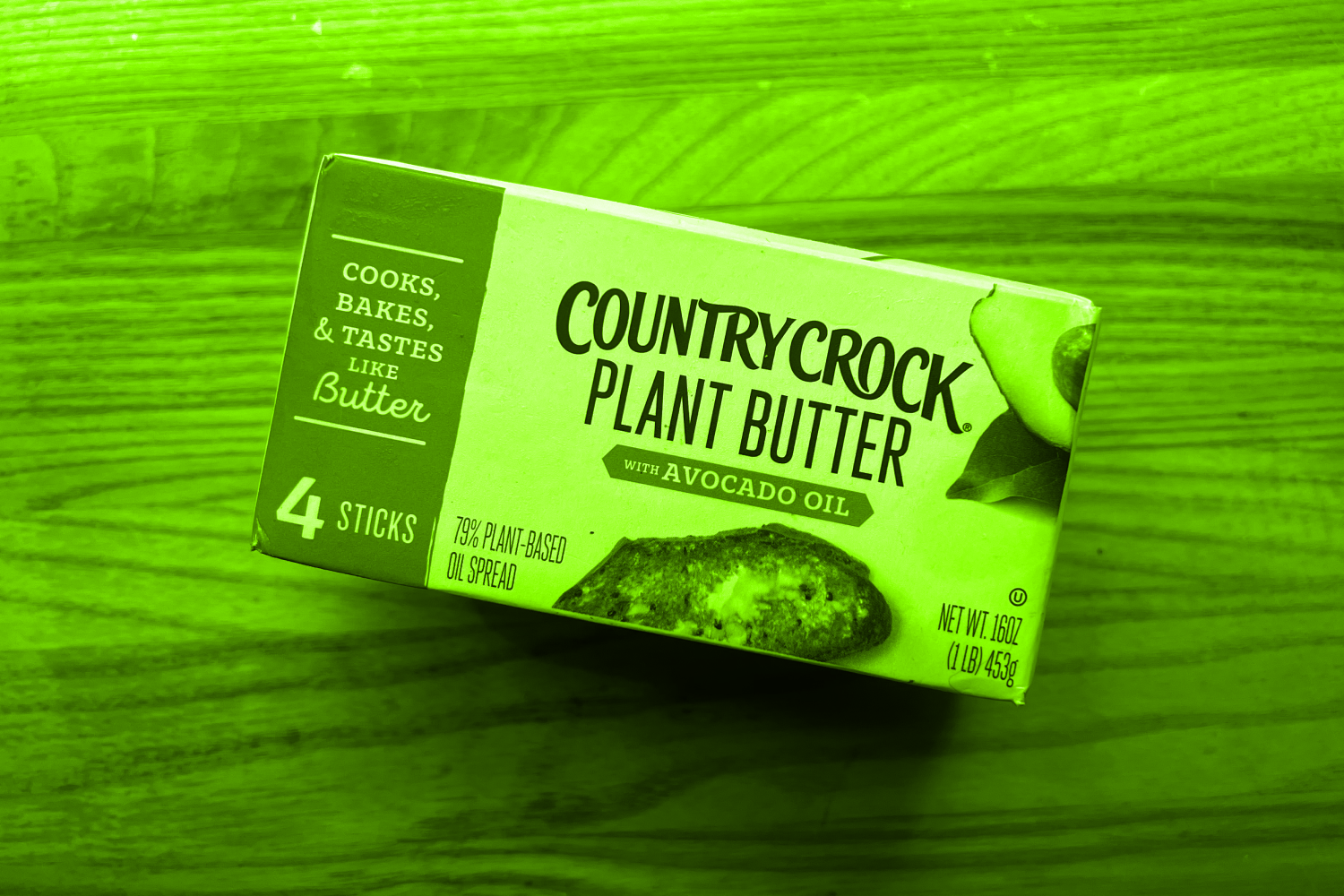Big Butter goes after dairy-free alternatives
The American Butter Institute has sent a letter to the FDA asking them to crack down on what it says is the unlawful use of the word “butter” on nondairy products from Country Crock. This move echoes similar efforts to stop the use of the word meat on things like faux burgers and ground beef. The market for plant-based butters is experiencing a growth spurt, driven in part by increasing awareness of the climate impacts of livestock. Butter has a heavy footprint: It takes more milk to make it than any other dairy product except cheese, which drives up emissions associated with each stick, block, or tub of spread. Even when they use ingredients like nuts and palm oil, alternatives still net out better for the planet.
What you can do: Simple. Try some dairy-free alternatives. Many taste just as good and perform similarly during cooking tasks. (We even tested four top offerings to find the one that’s as yummy on toast as it is in a pie crust.) And keep using the word “butter,” no matter what Big Butter says.
There may be more plastic in the oceans than we thought
Our understanding of the scope of plastic pollution is constantly evolving—particularly when it comes to tallying microplastics in our oceans. A study published last week in the journal Nature indicates that previous estimates might have been off by a factor of 10. The reason? They didn’t account well for nanoplastics—bits less than 1 micrometer in size, or around 1/50th the thickness of a human hair. The paper estimates that there are roughly 27 million metric tons of nanoplastic in the North Atlantic Ocean alone. When the team analyzed water samples from various depths, they found that polyethylene terephthalate (that’s PET, or the stuff used to make single-use water bottles) to be the most-prevalent, with polyvinyl chloride (common in pipes and toys) and polystyrene (that’s foam) were the next most widespread.
What you can do: Reduce your use of single-use plastics, support organizations and legislation pushing to curb plastic production, and brush up on our top 13 tips for avoiding microplastics.
Louisiana declares methane gas ‘green’ energy
Gas pipelines in Louisiana may soon be able to access funding that would have otherwise gone to solar and wind projects. Following the lead of similar measures in Indiana, Ohio, and Tennessee, Grist reports that Louisiana legislators have redefined methane gas as a “green” energy source. If you’re cocking your head to the side like a confused cat, that’s the correct response. You’ve likely heard methane referred by its more-common name: natural gas. “The intent of these laws is to allow the build-out of fossil fuel infrastructure, which will perpetuate the use of fossil fuels for decades to come,” says Laura Peterson, a senior analyst with the Union of Concerned Scientists. Methane, which gas companies pull from deep below ground via fracking, was deemed “natural” in the 19th century when people saw it rising from cracks in the Earth’s surface; it seemed more natural than whale oil or coal, and the name stuck.
What you can do: Call things by their actual name. Fossil-fuel interests deploy the phrase “natural gas” to confuse consumers, and it works. Here are some suggestions on what to call it instead of “natural gas.”
Road trips are back in a big way
Prep your soundtrack, find your driving glasses, and remember to stretch: The summer road trip is back. According to Bank of America’s most recent Summer Travel and Entertainment Outlook report, around 60% of travelers are opting to explore the nation’s nooks and crannies by car this summer instead of hopping on a flight. Numerous factors—including financial worries and air-safety concerns—account for the increased highway traffic. Spoiler alert: Those getaways generate a lot of planet-warming emissions, and also piles of methane-spurting trash.
What you can do: Honestly, a lot. Even if you’re not yet driving an EV, there are plenty of small ways to make a getaway easier on the Earth. One place to start? Download your playlists while you’re still on your home WiFi instead of streaming them from the road; the emissions associated with playing a song stored on your device drop 80% after the first time through it. Check out more tips to bring on your next road trip.

